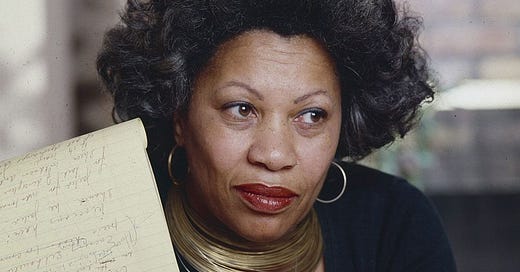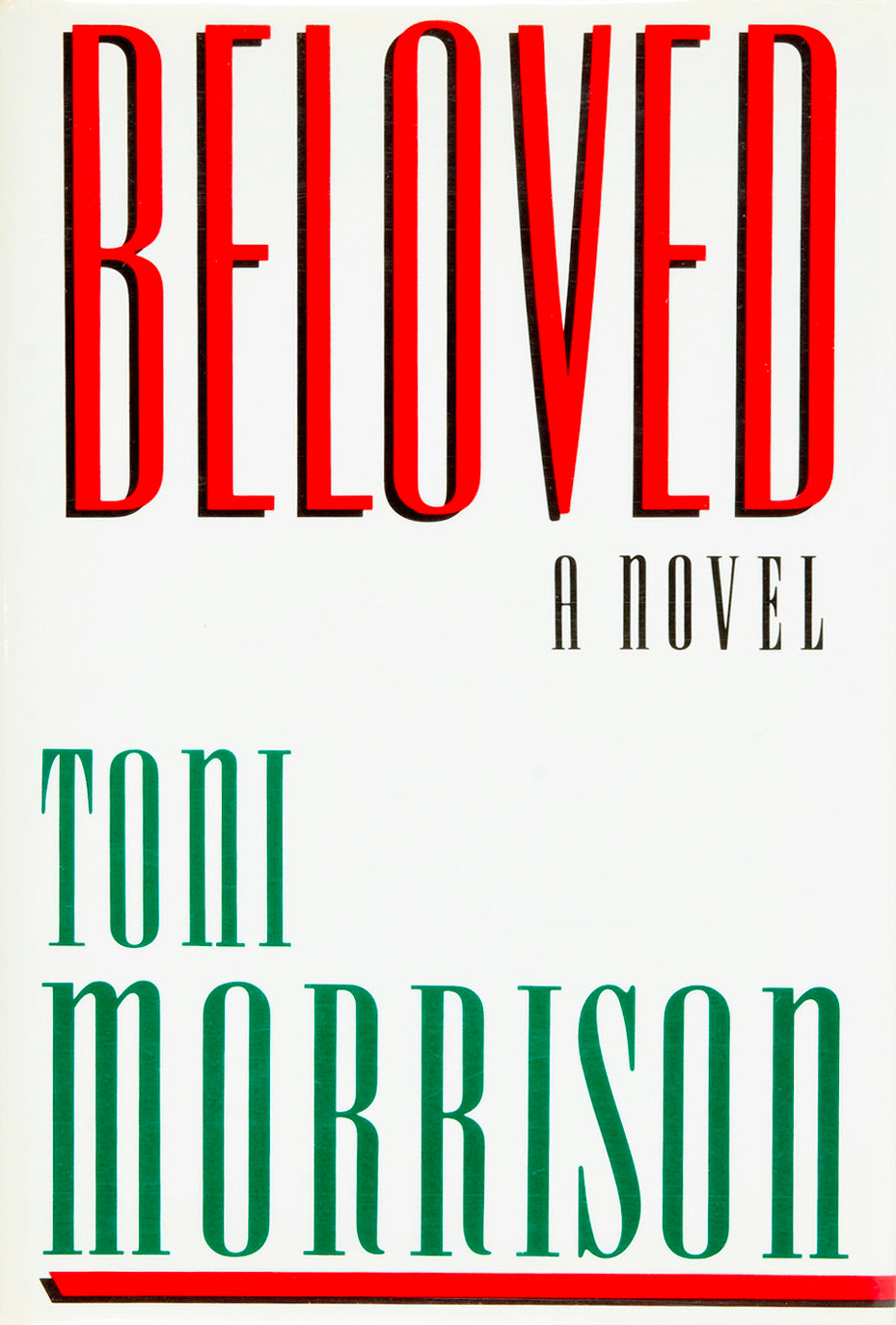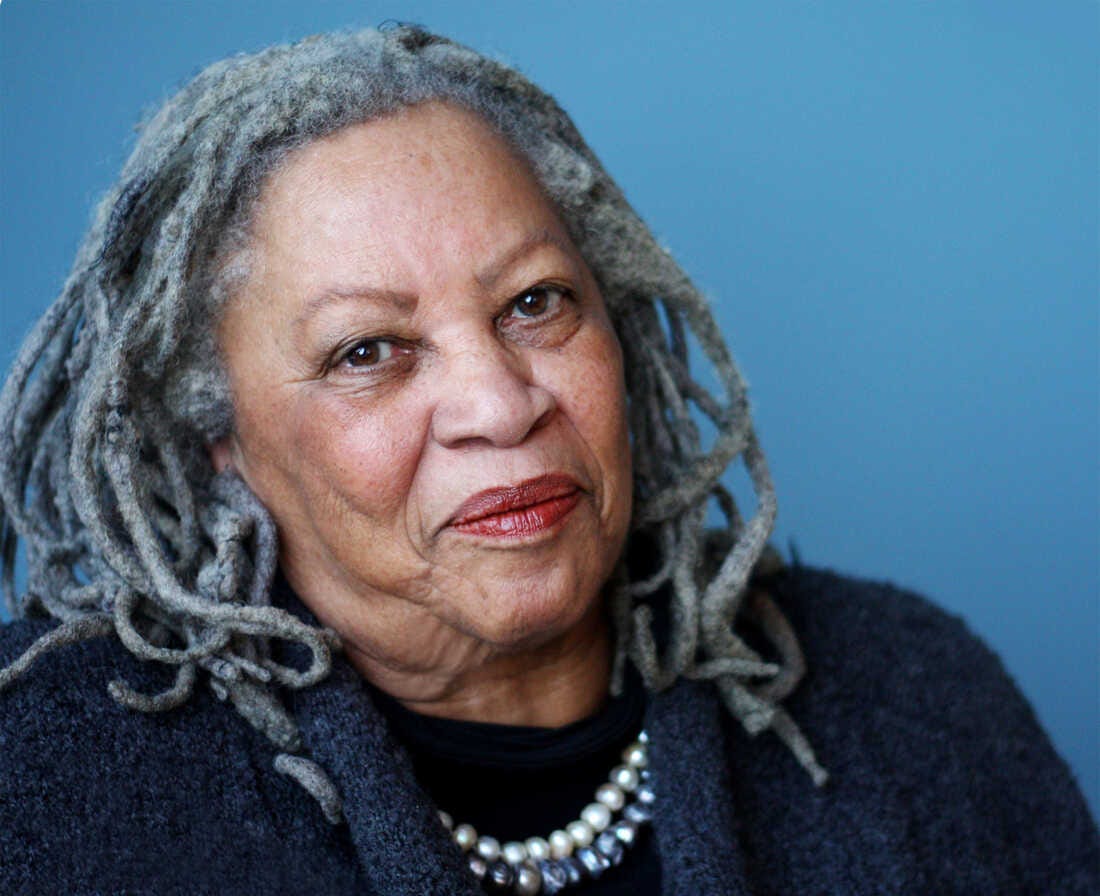For starters, I’ll admit that I’d never heard of Toni Morrison until graduate school. That’s quite late for someone who considers herself a bibliophile. Her name was thrown around in my classes and for a long time, I was certain that Toni was a man (!). Toni this, Toni that. Professor after professor mentioned Toni Morrison in our literature classes but not a single one of them assigned her work and that was such a shame. Perhaps you’ve come across her first novel, The Bluest Eye, which is often found in American high school English curriculums (and banned book lists), but it never landed on my school’s reading list. So I said: fuck it, it was time, and my life is that much better for it.
If you’ve never experienced the craft and artistry of Toni’s writing, you’ll soon discover that the lauded author was a true master of the craft. Despite some of the challenging subjects in her books, her prose is lyrical, dancing from page to page with such ease and finesse.
Born Chloe Ardelia Wofford, Morrison was raised in Ohio by a working-class family. After attending Howard and Cornell universities, Morrison landed an editing job at a textbook division of publishing giant Random House in upstate NY. She eventually relocated to NYC to become the first Black female editor at RH. During her near two-decade tenure, Morrison brought Black literature to the mainstream, editing works by Chinua Achebe, Angela Davis, Black Panther Huey Newton, and Muhammad Ali.
Since college, Toni developed a habit of waking up at 4am to write, a habit that became necessary while raising her two young children. She kept her writing secret from her fellow colleagues at Random House until the publication of The Bluest Eye in 1970. The book caught the attention of an editor at Knopf, an imprint of Random House, and well…the rest is history. I’ll end by saying that it took longer than most expected but Toni eventually won the Nobel Prize in Literature in 1993, becoming the first Black woman of any nationality to win the prestigious award. In her speech, Morrison said:
We die. That may be the meaning of life. But we do language. That may be the measure of our lives.
We lost Toni months before the onset of the pandemic. But what she left behind will live on and I’m thrilled to share a little slice of Morrison with you all, to measure our lives, or at least her characters’ lives, through her language.
I’m thrilled for us to read the author’s most celebrated work, Beloved, for our March pick. The story is inspired by a true story of an enslaved African-American woman named Margaret Garner…and to tell you more about it would be ruining the book. As always, you can find a copy of Beloved at your used and/or local bookstore, library and Bookshop.org. With that being said, happy reading!
P.S. Should you find yourself in New Jersey, Princeton University’s Firestone Library is currently hosting an exhibition on Toni’s creative process (the university owns all her papers as she was a faculty member there for years).






I accidentally started reading The Bluest Eye when I was in elementary school. The book had the first run cover which features a little Black girl holding a blonde baby doll so I, being a child, said “relatable!” and started to read. And that’s the story of why I have never finished reading a single thing that Toni Morrison has ever written!
loveeeee this! can’t wait♥️♥️♥️ only picked up my first toni book last year so i want to read more😍 ty fernpop!!